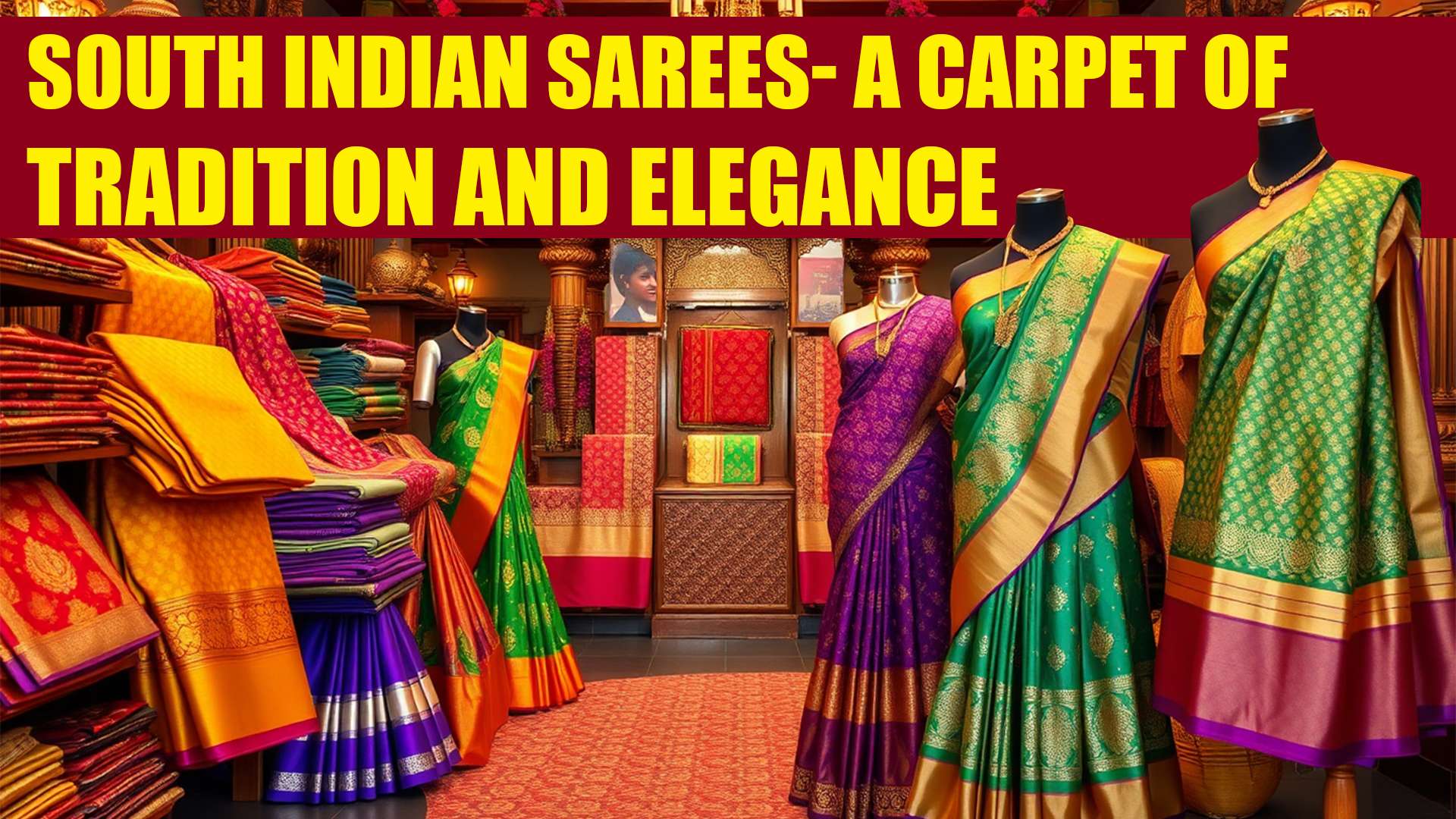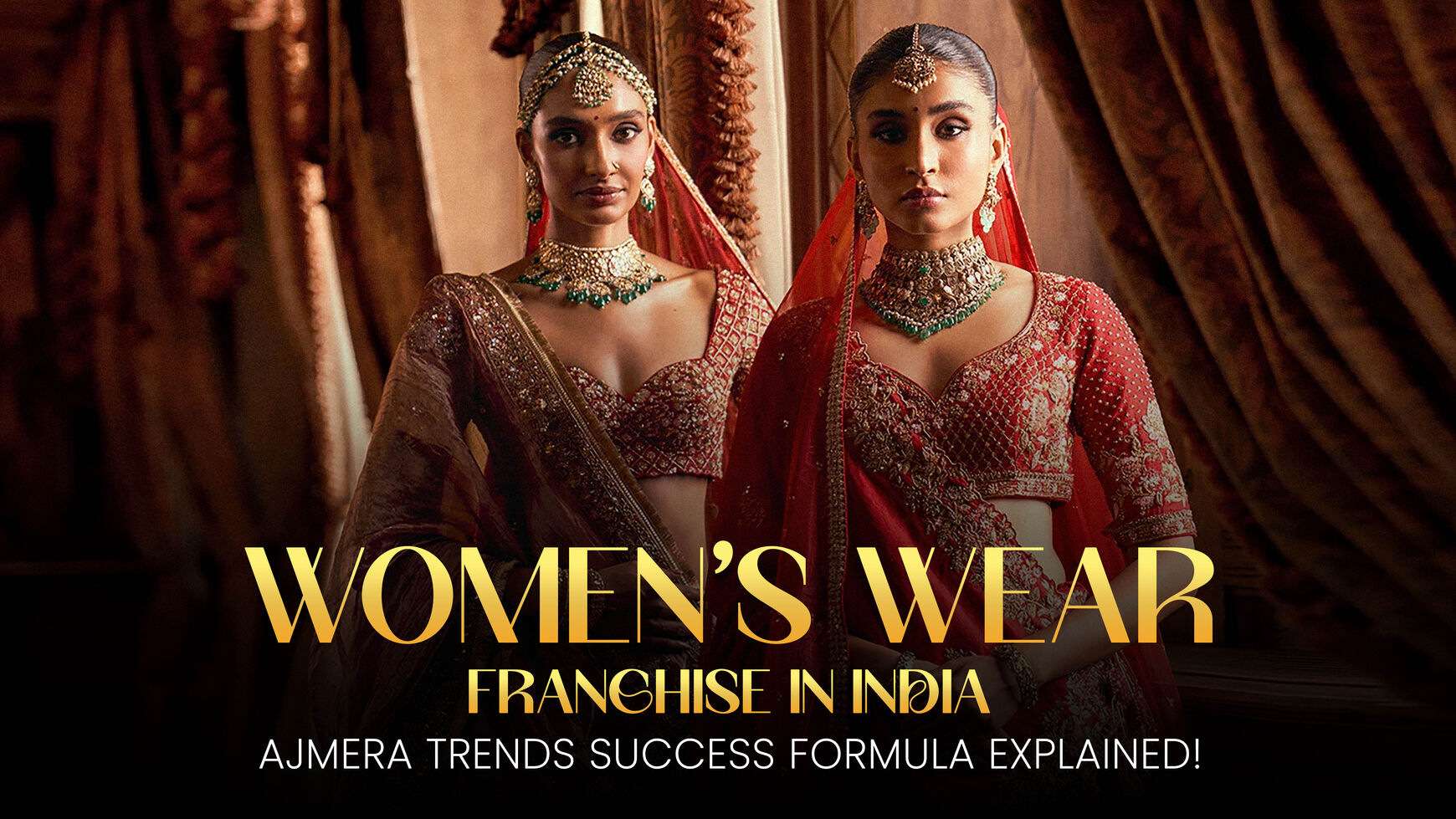South Indian Sarees- A Carpet of Tradition and Elegance

Share Blog:
India is a country with diverse traditions, culture, and dress. Clothing expresses a region's identity, heritage, and social traditions. The saree symbolizes feminine elegance and cultural prosperity among the most famous and beloved fabrics, especially the South Indian wedding saree.
Overview of South Indian Culture and Wedding Attire
South Indian culture is a grand blend of ancient traditions, artistic expression, and complex social traditions markedly different from other regional traditions in India. Wedding ceremonies in South India are complex affairs that showcase the region's deep-rooted cultural differences. They feature resplendent saree styles in more ornate designs. The Indian wedding saree in the South embodies a unique beauty that emphasizes elegance.

Simplicity and traditional handicrafts
In South India, wedding sarees are more than just a garment. It is a cultural artifact that represents a family heirloom, artistic skills, and the uniqueness of the region. Each state in South India, be it Tamil Nadu, Karnataka, Andhra Pradesh, or Kerala, has its unique saree style. These styles reflect local weaving techniques, color choices, and symbolic meanings.
Distinctive Features of South Indian Wedding Sarees
1. Textile and weaving techniques
South Indian wedding sarees are famous for their outstanding fabric quality and intricate weaving techniques. Silk is the main choice for wedding dresses, especially the Kanjeevaram silk sarees from Tamil Nadu are celebrated.
These sarees are characterized by:
-
Highest quality genuine mulberry silk
-
Contrasting border and pallu design
-
Intricate zari work using gold and silver thread
-
Intricate temples and geometric patterns that tell cultural stories
2. Character symbols
The choice of colors in a South Indian wedding saree has a profound meaning. Although red is a traditional color that represents prosperity and happiness in a marriage, South Indian brides often search for:
-
dark reddish brown
-
dark burgundy
-
Gold-bordered saree
-
Delicate pastel shades with gold trim
3. Regional diversity
Each state of South India brings its unique touch to wedding saree designs: -
Kanjeevaram Sarees from Tamil Nadu: Known for their temple border designs and heavy silk work.
-
Pochampally Sarees from Telangana have intricate geometric ikat patterns
-
Kerala kasavu sarees feature a cream and gold color combination
-
Mysore Silk Sarees from Karnataka: Lightweight with a simple yet elegant design

For Franchisee Inquiry, Call: +9163521 77288
4. Dressing style
Dressing a South Indian wedding saree is very different from the North Indian style. Traditional covering methods emphasize-
-
More practical and comfortable pleating.
-
Helps bring more dynamism to the wedding ceremony.
-
Demonstration of exquisite border saree work
-
Create a more fluid silhouette using fewer pins
Cultural Significance and Modern Adaptation
Although traditional designs are still popular, contemporary South Indian wedding sarees have undergone a remarkable transformation. Young designers combine traditional craftsmanship with modern aesthetics to create an attractive saree for the new generation at the same time maintaining cultural integrity.
Modern brides are increasingly choosing sarees that:
-
Include a contemporary color palette and have lighter clothing for easier movement.
-
Combining traditional techniques with innovative design elements.
-
Allows personalization while respecting cultural norms
Conclusion
South Indian wedding sarees represent a remarkable confluence of artistic excellence, cultural heritage, and personal expression. They're not just clothes but it is also a living legend that conveys family traditions. pride of the region and personal beauty. As India continues to develop these sarees remain a powerful symbol of cultural continuity by adapting but still maintaining their essence. It is a true reflection of the energetic spirit of the South Indian tradition.

For Wholesale Inquiry, Call: +916358907210
Also read: Why is Clothing Franchise Business Popular In India.
FAQs-
Q. Which attire does a girl prefer on her wedding day in a South Indian Wedding?
A)- In South Indian weddings, a girl normally prefers to look stunning in a traditional wedding saree to complete her bridal look as a wedding day is the most important and unforgettable day in a girl’s life.
Q. What does a saree symbolize to a girl or a woman?
A)- A saree is the most elegant six-yard fabric woven beautifully by artisans and looked upon by a girl or a woman as the symbolization of cultural values and traditional practices followed by the ancestors in weddings and ceremonies.
Q. Mention some different types of South Indian Sarees that are in high demand in South Indian weddings and occasions.
A)- Some of the best and highly demanded South Indian sarees are Kanjeevarams, Poachampally, Kasavu, Mysore Silk Sarees, etc.

For Wholesale Inquiry, Call: +9163589 07210
Also, Read…





